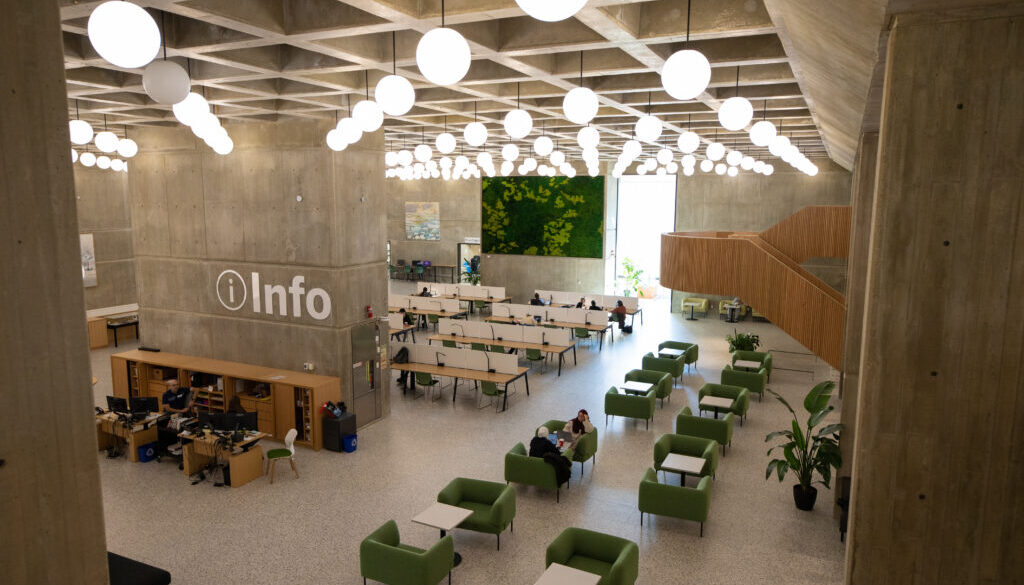Cost of Living Crisis: Domestic Perspective
Affordable, accessible and student-friendly: three words that do not resonate with an undergraduate student living in London, Ontario. Since recovering from the pandemic, prices across Canada have soared, to the point that many Western students are finding it difficult to purchase groceries, afford transportation, and that’s not even considering the prices of organic or vegan food options.
Domestic students at Western pay, on average, between $6000 and $7000 in tuition costs. Even during the pandemic, when classes were online, tuition costs were not reduced. Since coming back to campus, students have only witnessed a heightened increase in expenses.
Return to in-person learning has turned out to be challenging for students in more than one way, says Jessica Look, the USC’s Vice President of External Affairs.
“With the return to in-person learning, compounded with inflation and the tail end of a global pandemic, the increased cost of living for domestic students has been detrimental. The spike in cost of rent, groceries, transportation, and more have created an additional stressor for students as they navigate their post-secondary education,” says Look.
Canadian students are witnessing an era of unbearable inflation. Canadian inflation rate reached a high of 7.73% in May 2022, and an average of 6.8%, the highest annual average since the 1990s. For students, this means increased rent and utility costs, food prices, transportation costs, and much more.
Limited to working only part-time jobs during the school year, Western students are finding it difficult to find affordable food prices in London, Ontario. Abigail Sobin, a fourth-year International Relations student at Western University, talks about the increase in food prices in the campus radius.
“I think that the rising cost of groceries is one of the issues that has affected students the most. I used to spend roughly $75 when purchasing groceries. I now spend $100 + every time I go to the grocery store, even when buying just the basics,” says Sobin.
Students in search of fresh produce or vegan options face an even dire challenge, says Madison Milanczak, a fourth year political science and sociology student, who has remained vegan for over five years.
“I’ve been vegan for 5 years and the rising cost of vegan alternatives (specifically protein) have made it hard to create affordable meals for the everyday. Alongside the increasing prices of rent it feels impossible for the average person to maintain a healthy diet, pay rent, and deal with the stressors (and extra costs) of university,” says Milanczak.
For students without a car, grocery stores within a walking distance are visited the most to purchase food items, says Amanda Gutzke, a fourth-year student in politics, philosophy and economics.
“Students without access to a vehicle are disproportionately impacted by the rise of cost of living. We are unable to ‘shop around’ for the best deals or do a quick trip to take advantage of student discounts,” explains Gutzke.
“In addition, for students on the north side of campus, the closest grocery stores are Loblaws and Farm Boy, which are considerably more expensive than other grocery stores,” says Gutzke. The cost of groceries varies from store to store. Although not by a wide margin, there still exists a differentiation in prices amongst grocery stores.
Recognizing the hardships faced by students due to inflated prices, the University Students’ Council (USC) is building up its advocacy initiatives on behalf of the student body at Western University.
“The USC is currently advocating for better student financial aid on the provincial and federal level; recently, the federal government announced that they would be permanently eliminating interest on student loans,” explains Look.
To assist students with the increased cost of groceries and combat food insecurity, the USC’s Food Support Services offers free non-perishable food items for all Western students. Food Support Services is located in Room 40F, UCC Building. One of the services offered is the Community Pantry, which is open Monday to Friday from 10 AM to 3 PM, and has extended hours on Wednesdays from 10 AM to 5 PM.
Furthermore, the USC is taking steps to negotiate with the London Transit Commission (LTC) to ensure bus routes remain consistent for university students. “We’re also working to advocate for consistent and reliable intracity transit in London, as well as interregional transportation from London to other regions of Ontario. We’ve also been speaking with community members and working on all levels of government to continue the conversation about housing and increasing rental prices,” says Look.
As LTC transportation stops at night, the USC offers all Western students the Mustang Express service, a shuttle service that runs every Thursday, Friday, and Saturday nights, starting at 12:30 a.m. until 3 a.m.
The shuttle service can be accessed by all part-time and full-time students, and only requires a valid UWO Student ID to board the shuttle. Students can view the Mustang Express Pick-Up points here.
Times are challenging right now, and the USC is here for you. If you would like to see different advocacy priorities, or your concerns better represented in your student council, you can reach out to your faculty councillors or reach out to Vice President Jessica Look directly at externalaffairs@westernusc.ca.





